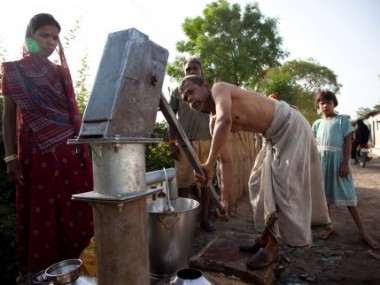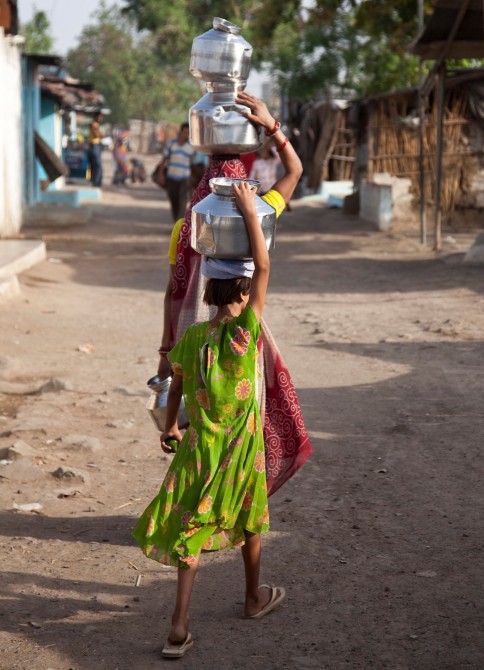 The Dow Chemical Company and Bhopal’s Second Disaster
The Dow Chemical Company and Bhopal’s Second Disaster
The Dow Chemical Company (Dow), as the successor company to the Union Carbide Corporation (UCC), has a clear case to answer regarding an ongoing contaminated water disaster in Bhopal.
This disaster is a major public health issue affecting tens of thousands of poor people in the slum areas surrounding the abandoned Union Carbide pesticide factory.
It is the second disaster to befall Bhopal and is a separate matter from the 1984 Bhopal Gas Tragedy. There has been no settlement of any kind, no compensation has been paid, and there has been no attempt at meaningful environmental clean up.
There is no connection to the $470m payout made by Union Carbide in respect of the civil case pertaining to the Gas Tragedy.
The US courts accept that this ongoing contamination issue is distinct from the 1984 Gas Disaster and the ‘polluter pays principle’ sees Dow, as the successor company to UCC, liable for the contamination.
Bhopal’s Second Disaster- Facts:
- The groundwater aquifer(s) in Bhopal, around the abandoned Union Carbide factory (site of 1984 Bhopal Gas Disaster), is heavily contaminated with highly toxic chemicals.
- This contaminated groundwater has been the primary drinking water source for tens of thousands of people for many years and, in some cases, their supply is very likely to have been contaminated since before the Gas Disaster.
- Although a local government scheme has seen water piped in to many of the previously affected communities these supplies can be intermittent and unreliable leaving the communities with no option other than to use the contaminated water.
- In June 2008, tests performed by the Indian Institute of Toxicological Research confirmed excessive levels of nitrate, chloride and heavy metals in 20 further colonies, bringing to 42 the number having ground water contaminated by chemicals believed to have originated from toxic waste dumped by Union Carbide.
- A full contamination survey has never been performed and, in areas where there is no piped, or other supply, an unknown number of families still use the contaminated water as their primary water source and tens of thousands of people are believed to be regularly consuming it.
- The chemicals leaching in to the water are highly toxic. They attack all of the body’s organs, some are known carcinogens, and other cause birth defects.
- The contamination is being caused by water leaching through toxic waste that was buried on the factory site and by leakage from solar evaporation ponds located just outside of the factory site.
- The solar evaporation ponds are known to have been leaking years before the disaster (an internal Union Carbide memo from 1982 reveals this).
- Union Carbide was aware of the environmental and groundwater contamination, after carrying out tests in the area, but chose to keep the findings of these tests secret.
- The toxic contamination of the area only became public knowledge when Greenpeace tested the area and published a report, in 1999, labeling the area a ‘global toxic hotspot’.
- The US courts accept that the water contamination is a separate issue from the gas disaster.
- Dow Chemical, as current owner of Union Carbide, is responsible for the continuing contamination.
All supporting documentation available on request.
Dow’s Defence Exposed
Dow: “Union Carbide Corporation (UCC) and Union Carbide India Limited (UCIL) settled their liability for the gas release tragedy with the Government of India in 1989 and paid $470 million to the Government of India. This settlement was upheld by the Indian Supreme Court.
FACT: The water contamination has nothing to do with the gas tragedy. This settlement covers injuries caused by gas exposure and DOES NOT cover birth defects or any liabilities arising from subsequent and continued contamination of the environment or groundwater. The water contamination, as acknowledged by the US courts, is a separate matter to the 1984 Gas Disaster.
Dow: “The Bhopal site was owned and operated by UCIL, a separate, publicly traded Indian Company. With the approval of the Supreme Court, Union Carbide sold its interest in UCIL in 1994 and UCIL was renamed Eveready Industries India Limited – a company that continues to operate in India today and is the company that was involved in the tragedy.
 FACT: In 1984 the Bhopal factory was operated by Union Carbide India Limited (UCIL) but, Union Carbide Corporation (UCC), a US based company, always retained the controlling interest in UCIL with never less than 50.9% of the stock. Union Carbide is now a 100% owned subsidiary of Dow- with Dow executives sitting on its board.
FACT: In 1984 the Bhopal factory was operated by Union Carbide India Limited (UCIL) but, Union Carbide Corporation (UCC), a US based company, always retained the controlling interest in UCIL with never less than 50.9% of the stock. Union Carbide is now a 100% owned subsidiary of Dow- with Dow executives sitting on its board.
As Dow themselves point out, UCC sold its shares in UCIL in 1994- a full ten years AFTER the disaster- and thus retained control of UCIL until that point. Dow’s own statement acknowledges that both UCC and UCIL were liable for the disaster. If they accept the courts ruling, regarding the settlement, then they must accept their culpability.
UCC, for its part, consistently argued that UCIL was an entirely separate corporate entity. UCC also repeatedly claimed in the courts that it was purely a US-based corporation and denies that it had ‘operations’ in India or elsewhere outside the USA. However, UCC’s 1984 annual report stated: “Union Carbide Corporation’s business worldwide is conducted principally through the divisions, subsidiaries and affiliates listed below.” One of those listed was UCIL, which was also included in UCC’s consolidated balance sheet for the same year.
Dow: “Dow acquired shares of Union Carbide in 2001, seven years after UCIL became Eveready Industries India Limited. Union Carbide had no assets in India at the time of the transaction with Dow. Dow never owned or operated the UCIL plant site.”
FACT: Union Carbide is now a 100% owned subsidiary of Dow. Under the ‘polluter pays’ principle, enshrined in the law of both the US and India, Union Carbide is responsible for the environmental damage. Under the ‘successor liability’ principle, also established in both US and Indian law, the current owner of UCC, Dow Chemical, is liable for the continuing environmental contamination and the damage to people’s health caused by it.
In the takeover of 2001 Dow acquired all of Union Carbide’s assets AND its liabilities; and Dow has accepted Union Carbide’s liabilities in the US. Outstanding liabilities of Union Carbide are directly addressed by Dow representatives and, once paid, are registered as charges on Dow’s consolidated earnings.
FACT: In a 2006 speech to the UN Andrew Liveris (Chairman and CEO of Dow) said: “Water is the single most important chemical compound for the preservation and flourishing of human life… “And yet today, more than a billion people are in peril every day because they do not have enough water or the water they have is unhealthy. Lack of clean water is the single largest cause of disease in the world and more than 4,500 children die each day because of it.”


